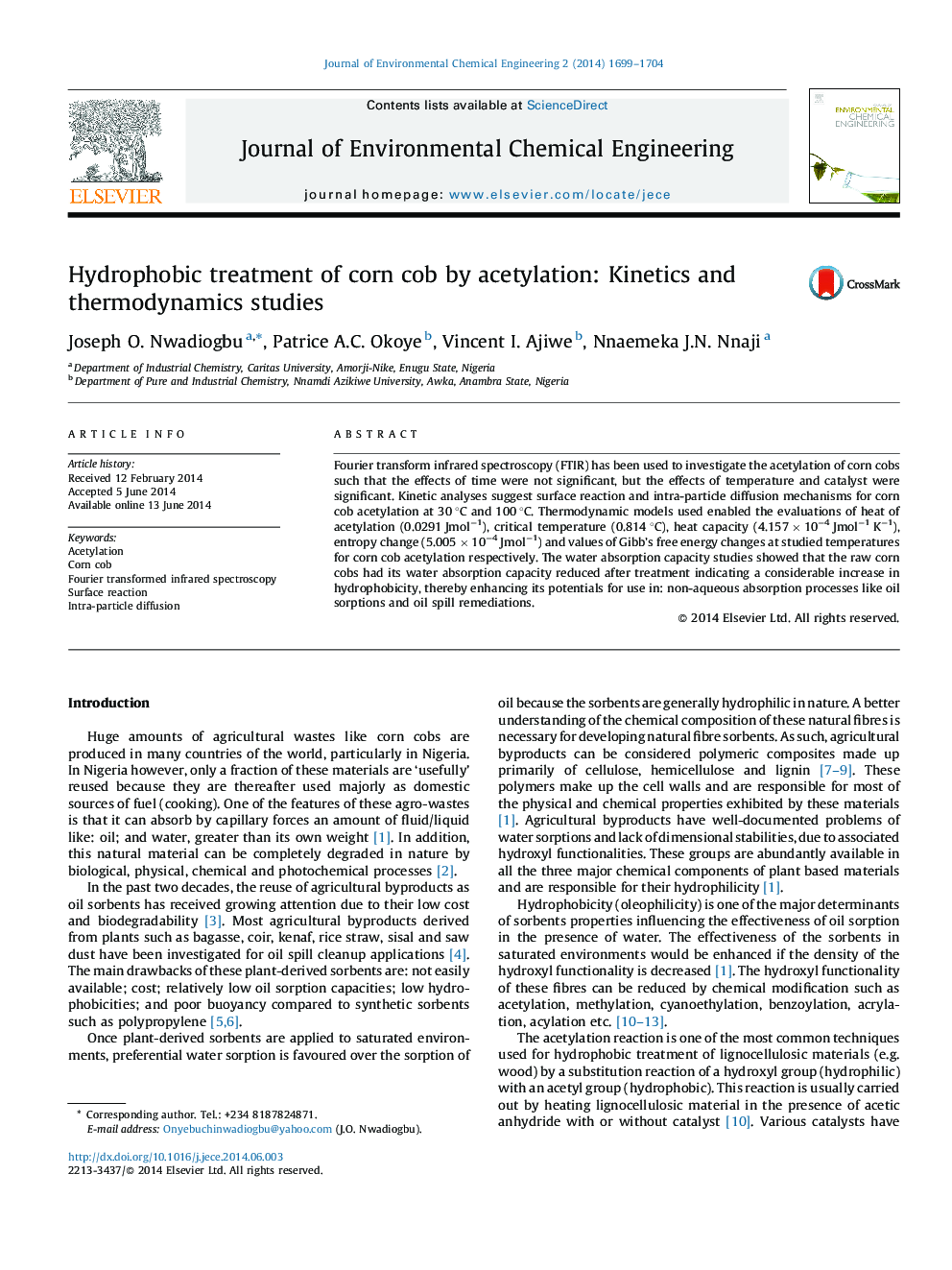| Article ID | Journal | Published Year | Pages | File Type |
|---|---|---|---|---|
| 222004 | Journal of Environmental Chemical Engineering | 2014 | 6 Pages |
Fourier transform infrared spectroscopy (FTIR) has been used to investigate the acetylation of corn cobs such that the effects of time were not significant, but the effects of temperature and catalyst were significant. Kinetic analyses suggest surface reaction and intra-particle diffusion mechanisms for corn cob acetylation at 30 °C and 100 °C. Thermodynamic models used enabled the evaluations of heat of acetylation (0.0291 Jmol−1), critical temperature (0.814 °C), heat capacity (4.157 × 10−4 Jmol−1 K−1), entropy change (5.005 × 10−4 Jmol−1) and values of Gibb's free energy changes at studied temperatures for corn cob acetylation respectively. The water absorption capacity studies showed that the raw corn cobs had its water absorption capacity reduced after treatment indicating a considerable increase in hydrophobicity, thereby enhancing its potentials for use in: non-aqueous absorption processes like oil sorptions and oil spill remediations.
